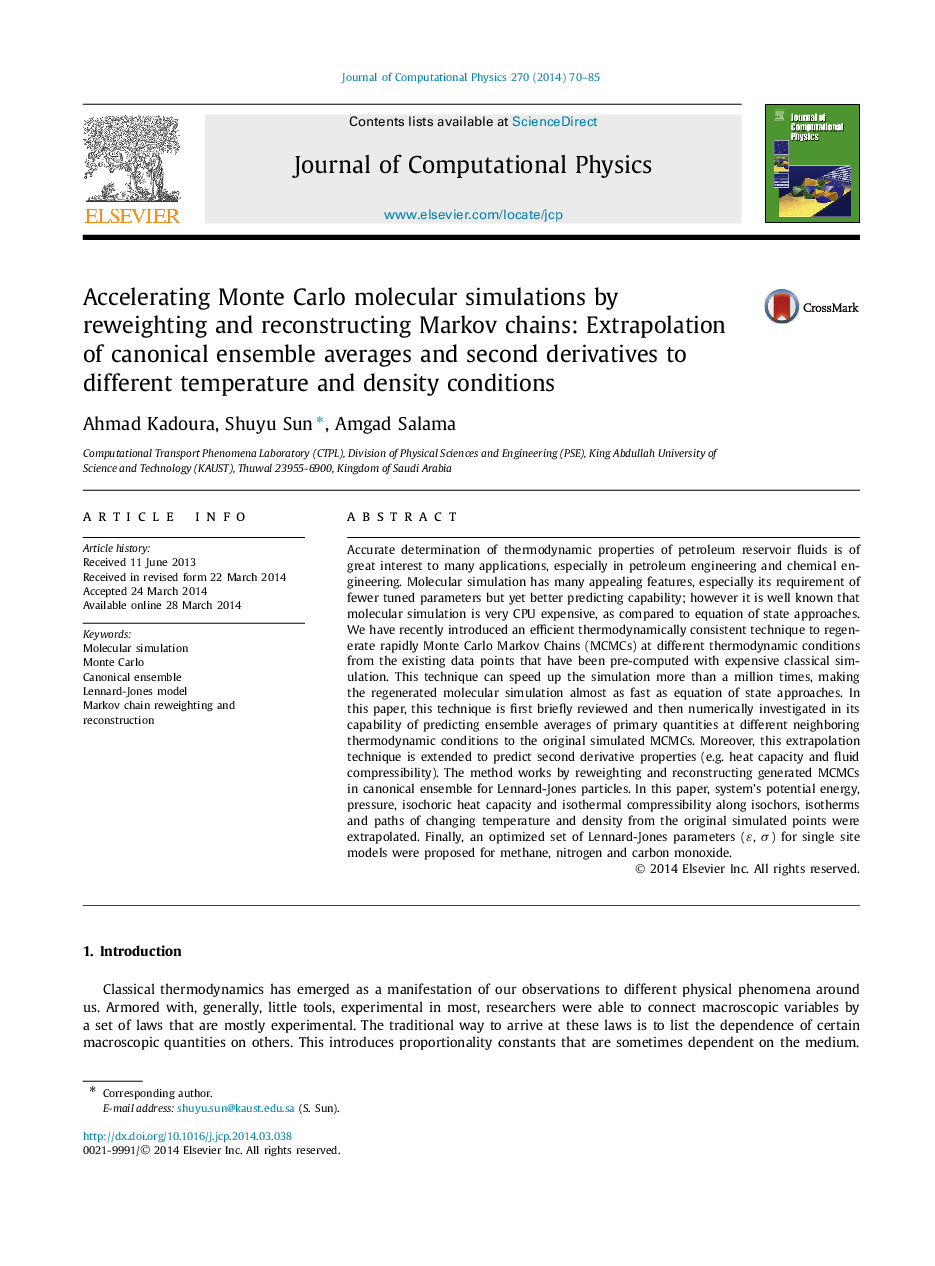| Article ID | Journal | Published Year | Pages | File Type |
|---|---|---|---|---|
| 6932528 | Journal of Computational Physics | 2014 | 16 Pages |
Abstract
Accurate determination of thermodynamic properties of petroleum reservoir fluids is of great interest to many applications, especially in petroleum engineering and chemical engineering. Molecular simulation has many appealing features, especially its requirement of fewer tuned parameters but yet better predicting capability; however it is well known that molecular simulation is very CPU expensive, as compared to equation of state approaches. We have recently introduced an efficient thermodynamically consistent technique to regenerate rapidly Monte Carlo Markov Chains (MCMCs) at different thermodynamic conditions from the existing data points that have been pre-computed with expensive classical simulation. This technique can speed up the simulation more than a million times, making the regenerated molecular simulation almost as fast as equation of state approaches. In this paper, this technique is first briefly reviewed and then numerically investigated in its capability of predicting ensemble averages of primary quantities at different neighboring thermodynamic conditions to the original simulated MCMCs. Moreover, this extrapolation technique is extended to predict second derivative properties (e.g. heat capacity and fluid compressibility). The method works by reweighting and reconstructing generated MCMCs in canonical ensemble for Lennard-Jones particles. In this paper, system's potential energy, pressure, isochoric heat capacity and isothermal compressibility along isochors, isotherms and paths of changing temperature and density from the original simulated points were extrapolated. Finally, an optimized set of Lennard-Jones parameters (ε, Ï) for single site models were proposed for methane, nitrogen and carbon monoxide.
Related Topics
Physical Sciences and Engineering
Computer Science
Computer Science Applications
Authors
Ahmad Kadoura, Shuyu Sun, Amgad Salama,
